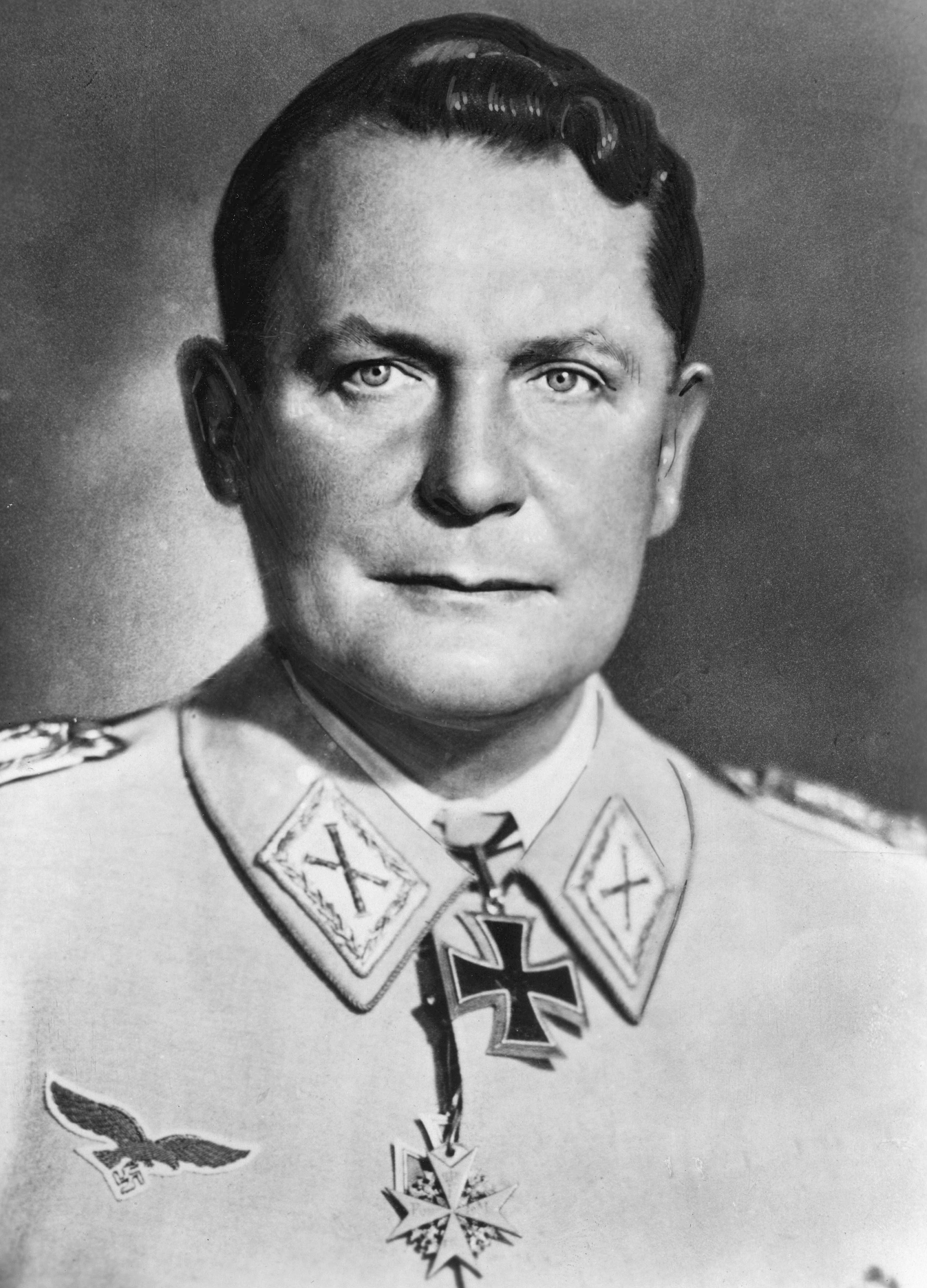Secret State Document NOTES
on the conversation between Field Marshal Goering and the Duce in the Palazzo Venezia on the 23rd October 1942.
* * * * * *
* * * The Reiehsmarshal then described Germany's method
in fighting the partisans. To begin with the entire livestock and all food-stuff is taken away from the areas concerned, so as to deny the partisans all sources of food. Men and women are taken away to labour camps, the children to children's camps, and the villages burnt down. Thus for example had the railways in the vast wooded areas of Bialowiza been safeguarded should attacks occur, then the entire male population of villages would be lined up on one side and the women in the other side. The women would be told that all the men would be shot, unless they (the women) indicated which of the men did not belong to the village. In order to save their men, the women always pointed out the stranger. Germany had experienced that, generally speaking, soldiers were no use in carrying out such measures. Members of the Party discharged this task much more harshly and efficiently. For the same reason armies that were strengthened by a political creed such as the German (or the Russian) fought much more energetically than others. The SS, the guard of the old fighters of the Party, who have personal ties with the Fuehrer and who form a special elite, confirm this principle. Under this heading one might mention that communist commissars had rarely surrendered voluntarily. * * *
Berlin, 26th October 1942.
(Sgd.) Schmidt.
Extract from the minutes of a conversation between Goering and Mussolini, including Goering's description of German anti-partisan tactics and the capacity of party men (such as the SS) to take harsh measures
Authors
Hermann Goering (Reich Marshal; Commander in Chief, Luftwaffe; Commissioner for Four-Year Plan)
Hermann Göring
German Nazi politician, military leader and convicted war criminal (1893–1946)

- Born: 1893-01-12 (Rosenheim)
- Died: 1945-01-01 1946-10-15 (Nuremberg Court Prison Nuremberg) (reason for deprecated rank: error in referenced source or sources; reason for preferred rank: most precise value)
- Country of citizenship: German Empire; Nazi Germany
- Occupation: aircraft pilot; art collector; politician; war criminal
- Member of political party: Nazi Party (period: 1922-11-01 through 1923-11-23, 1928-04-01 through 1945-04-29)
- Member of: Sturmabteilung
- Participant in: Beer Hall Putsch; Nazi plunder; genocide; war crime
- Significant person: Alma Hedin (role: friend)
Date: 23 October 1942
Literal Title: Notes on the conversation between Field Marshal Goering and the Duce in the Palazzo Venezia on the 23rd October 1942.
Defendant: Hermann Wilhelm Goering
Total Pages: 1
Language of Text: English
Source of Text: Nazi conspiracy and aggression (Office of United States Chief of Counsel for Prosecution of Axis Criminality. Washington, D.C. : U.S. Government Printing Office, 1946.)
Evidence Code: D-729
Citations: IMT (page 6288), IMT (page 15111)
HLSL Item No.: 451484
Notes:D 729 was first entered as UK exhibit 281 in the case against Goering (21 March 1946).
Trial Issues
Criminal organizations (Gestapo, Leadership Corps, Cabinet, SS, SA, SD, OK… Partisan fighters and commandos, operations against, and treatment of (IMT…
Document Summary
D-729: PARTISAN WARFARE -- 26 Oct. 1942 -- Methods, Goering’s descriptions / PARTISAN WARFARE -- Brill oral evidence / ATROCITIES -- of -- German methods [Goering oral evidence -- Goering oral evidence